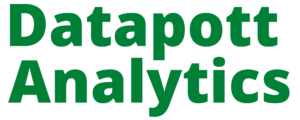Correcting heteroskedasticity by transforming the functional form of the model in EViews involves the following steps:
Step-by-Step Guide:
- Run Initial OLS Regression:
- Load your dataset in EViews.
- Go to
Quick -> Estimate Equation. - Enter your regression equation (e.g.,
Y = C(1) + C(2)*X1 + C(3)*X2). - Click
OKto estimate using Ordinary Least Squares (OLS).
- Diagnose Heteroskedasticity:
- Check for heteroskedasticity by going to
View -> Residual Diagnostics -> Heteroskedasticity Tests. - Choose and run a test (e.g., Breusch-Pagan-Godfrey, White test).
- If heteroskedasticity is detected, proceed with transformation.
- Check for heteroskedasticity by going to
- Consider Functional Form Transformations:
- Log Transformation: Apply log transformation if the data exhibits multiplicative heteroskedasticity (i.e., variance increases with the level of an independent variable).
- Transform dependent and/or independent variables by taking their logarithms (e.g.,
log(Y) = C(1) + C(2)*log(X1) + C(3)*log(X2)).
- Transform dependent and/or independent variables by taking their logarithms (e.g.,
- Square Root Transformation: Use the square root transformation for positive-skewed data.
- Transform dependent and/or independent variables using square roots (e.g.,
sqrt(Y) = C(1) + C(2)*sqrt(X1) + C(3)*sqrt(X2)).
- Transform dependent and/or independent variables using square roots (e.g.,
- Reciprocal Transformation: Apply reciprocal transformation if larger values need to be down-weighted.
- Transform the dependent variable using its reciprocal (e.g.,
1/Y = C(1) + C(2)*X1 + C(3)*X2).
- Transform the dependent variable using its reciprocal (e.g.,
- Log Transformation: Apply log transformation if the data exhibits multiplicative heteroskedasticity (i.e., variance increases with the level of an independent variable).
- Estimate the Transformed Model:
- Go to
Quick -> Estimate Equation. - Enter the transformed regression equation.
- Click
OKto estimate the transformed model.
- Go to
- Recheck for Heteroskedasticity:
- After estimating the transformed model, check for heteroskedasticity again.
- If necessary, iterate the process with different transformations until heteroskedasticity is minimized.
- Interpret the Results:
- Interpret the coefficients in the context of the transformation applied. For example, if log transformations were used, the coefficients represent elasticities.
Detailed Explanation:
- Log Transformation:
- Commonly used when the variance of the residuals increases with the level of the dependent variable. This transformation stabilizes the variance.
- Example: log(Y)=β0+β1log(X1)+ϵ\log(Y) = \beta_0 + \beta_1 \log(X_1) + \epsilonlog(Y)=β0+β1log(X1)+ϵ
- Square Root Transformation:
- Useful for data with positive skewness, reducing heteroskedasticity.
- Example: Y=β0+β1X1+ϵ\sqrt{Y} = \beta_0 + \beta_1 \sqrt{X_1} + \epsilonY=β0+β1X1+ϵ
- Reciprocal Transformation:
- Suitable when the variance decreases as the level of the variable increases.
- Example: 1Y=β0+β1X1+ϵ\frac{1}{Y} = \beta_0 + \beta_1 X_1 + \epsilonY1=β0+β1X1+ϵ
Practical Example:
Suppose your original model is: Y=β0+β1X1+β2X2+ϵY = \beta_0 + \beta_1 X_1 + \beta_2 X_2 + \epsilonY=β0+β1X1+β2X2+ϵ
- Run OLS and detect heteroskedasticity using the Breusch-Pagan test.
- Apply a log transformation to both the dependent and independent variables: log(Y)=β0+β1log(X1)+β2log(X2)+ϵ\log(Y) = \beta_0 + \beta_1 \log(X_1) + \beta_2 \log(X_2) + \epsilonlog(Y)=β0+β1log(X1)+β2log(X2)+ϵ
- Estimate the transformed model in EViews.
- Recheck for heteroskedasticity. If minimized, proceed with the interpretation of the transformed model coefficients.
Benefits:
Using functional form transformations can effectively stabilize variance and correct heteroskedasticity, leading to more reliable and interpretable regression results. This approach leverages the inherent relationships within the data, ensuring that model assumptions are better met.


